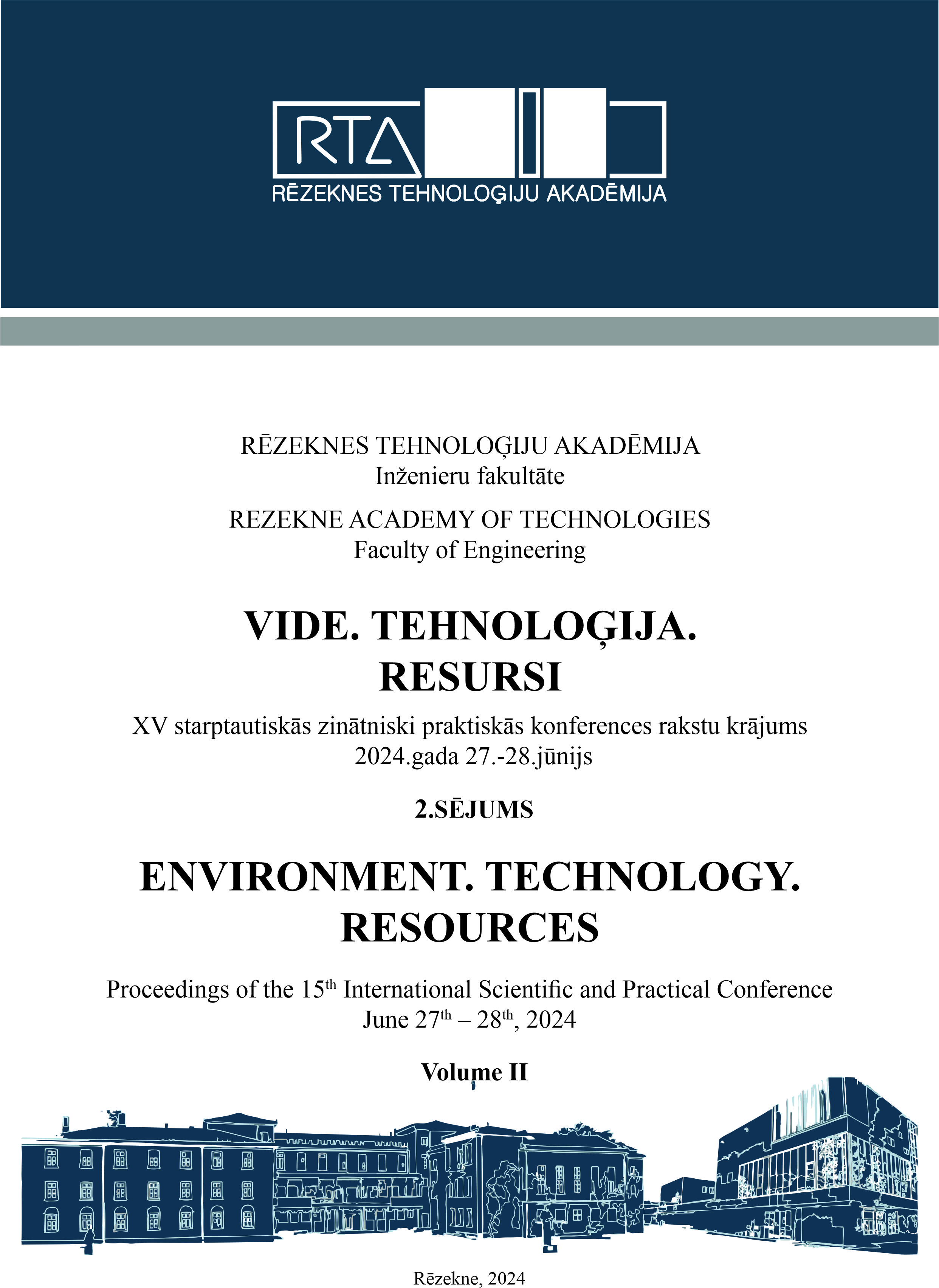EDUCATION IN THE ERA OF SMART CITIES: TRANSFORMATION AND OPPORTUNITIES
DOI:
https://doi.org/10.17770/etr2024vol2.8084Keywords:
education, innovation, smart city, technologiesAbstract
The concept of the smart cities is closely related to the opportunities of smart education that reflects how advanced technology enables learners to acquire knowledge and skills more effectively, efficiently, and conveniently. The role of smart education is to support learners in the 21st century to meet and successfully cope with the challenges of a digitalized society, including developing problem-solving skills. The aim of the paper is to examine the role of the education in modern smart cities, from the quadruple helix model perspective. Smart education has become an important strategy for building a smart society, as an essential part of the model, including collaborative innovation and interaction among government, academia, business and society. By the use of technologies and innovation, the modern educational institutions could promote not only student satisfaction with the learning process, but also support the development of sustainable smart and knowledge-based cities.
References
M. Iqbal. Smart City in Practice: Learn from Taipei City. Journal of Governance and Public Policy. Vol. 8, No 1, 2021, pp. 50-59.
F. Zhao, Fashola, O. Olarewaju, T. Onwumere, I. Smart city research: A holistic and state-of-the-art literature review. Cities, volume 119, 2021. https://doi.org/10.1016/j.cities.2021.103406.
A. Ojo,, Z. Dzhusupova & E. Curry. Exploring the Nature of the Smart Cities Research Landscape. In R. Gil-Garcia, T. A. Pardo, & T. Nam (Eds.). Smarter as the New Urban Agenda: A Comprehensive View of the 21st Century City. Springer, 2015, pp. 1-8
J. Okello, J. Akoko, Smart city trends and innovations shaping. The future of cities. Scientific papers of silesian university of technology. Organization and management series No. 169, 2023, pp. 553-558. http://dx.doi.org/10.29119/1641-3466.2023.169.3
N. Tri., P. Hoang & N. Dung. Impact of the industrial revolution 4.0 on higher education in Vietnam: challenges and opportunities. Linguistics and Culture Review, 5(S3) , 2021. pp 1-15. https://doi.org/10.37028/lingcure.v5 nS3.1350
OECD. Enhancing The Contribution Of Digitalisation To The Smart Cities Of The Future. 2019.
L. Darling-Hammond, et al. Empowered Educators: How High-Performing Systems Shape Teaching Quality Around the World. San Francisco, CA: Jossey-Bass. 2017. ISBN 9781119369608.
http://www.mi.government.bg/files/useruploads/files/innovations/manualnovember2012.pdf [Accessed 20 Feb, 2024]
I. Gigauri, V. Vasilev and Z. Mushkudiani, In pursuit of sustainability: towards sustainable future through education. International Journal of Innovative Technologies in Economy, 2022, (1(37), p. 7. https://doi.org/10.31435/rsglobal_ijite/30032022/7798
H. Bulkeley, L. Coenen, N. Frantzeskaki, C. Hartmann, A. Kronsell, L. Mai, and Y. V. Palgan. Urban living labs: Governing urban sustainability transitions. Current Opinion in Environmental Sustainability, 2016, 22, pp. 13–17.
R. V. Knight, Knowledge-based development: Policy and planning implications for cities. Urban Studies, 1995, 32(2), pp. 225–260.
I. Hirju and R. Georgescu, The Concept of Learning Cities: Supporting Lifelong Learning through the Use of Smart Tools. Smart Cities 2023, 6, pp. 1385-1397. https://doi.org/10.3390/smartcities6030066
A. Molnar, Smart cities education: An insight into existing drawbacks. Telematics and Informatics. Volume 57, 2021. https://doi.org/10.1016/j.tele.2020.101509
E. Mukul. and G. Büyük¨ozkan. Digital transformation in education: A systematic review of education 4.0. Technological forecasting and social change, 194 (2023), 122664, pp. 1- 21.
B. Williamson. Educating the smart city: Schooling smart citizens through computational urbanism. Big Data & Society, 2015, pp. 1-13. DOI: 10.1177/2053951715617783.
K. Demir, Smart education framework. Smart Learn. Environ. 8, 29, 2021. https://doi.org/10.1186/s40561-021-00170-x
R. Zhuang, H. Fang, Y. Zhang, A. Lu and R. Huang, Smart learning environments for a smart city: from the perspective of lifelong and lifewide learning. Smart Learning Environments, 4:6, 2017, DOI 10.1186/s40561-017-0044-8.
S. Lee, K. Lee, Smart teachers in smart schools in a smart city: teachers as adaptive agents of educational technology reforms. Learning, media and technology, 2023. https://doi.org/10.1080/17439884.2023.2207143
Blackboard [online]. [Accessed 13 March 2023]. Available from: https://www.blackboard.com/go/best- practices
European Commission, Directorate-General for Education, Youth, Sport and Culture, Key competences for lifelong learning, Publications Office, 2019, [Accessed 20 Jan, 2024] https://data.europa.eu/doi/10.2766/569540
J. Tham, G. Verhulsdonck. Smart Education in Smart Cities: Layered Implications for Networked and Ubiquitous Learning. IEEE Transactions on Technology and Society, vol. 4, no. 1, pp. 87-95, 2023, doi: 10.1109/TTS.2023.3239586.
S. Parusheva, S. Bobek, S. Sternad. Sustainable Higher Education: From E-Learning to Smart Education. Sustainability, 15, 2023. https://doi.org/10.3390/su151310378
COMMUNICATION FROM THE COMMISSION TO THE EUROPEAN PARLIAMENT AND THE COUNCIL 2022 Strategic Foresight Report Twinning the green and digital transitions in the new geopolitical context. COM/2022/289 final. https://eur-lex.europa.eu/legal-content/EN/TXT/?uri=CELEX%3A52022DC0289&%3Bqid=1658824364827 [Accessed 10 Feb, 2024].
Downloads
Published
Issue
Section
License
Copyright (c) 2024 Vihra Dimitrova, Nikolay Nikolov, Todor Gospodinov

This work is licensed under a Creative Commons Attribution 4.0 International License.



